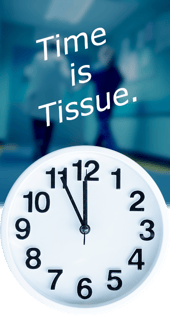Pulsara Around the World - February 2026
January Recap The start of 2026 was on the slow side for our events schedule, with our team heading to the Florida Fire & EMS Conference, the...
1 min read
 Team Pulsara
:
Nov 15, 2017
Team Pulsara
:
Nov 15, 2017
![What if we Measured Treatment Delays in Number of Brain Cells Lost? Thoughts from a Stroke Coordinator [Podcast]](https://www.pulsara.com/hubfs/timetissueclock-071173-edited.png)
What if instead of recording treatment delays in minutes, your stroke coordinator recorded them in number of brain cells lost?

Would your team still say "Oh well, it's only five minutes, that's not too bad" if the metric referred to were "Only 10 million brain cells?"
In this week's podcast episode, Shane talks to Alyana Samai, Stroke Program Coordinator at West Jefferson Medical Center who believes that too often we lose sight of why we have treatment time goals in the first place. Re-framing this concept helps bring back in to focus the fact that we aren't just working to reduce some arbitrary time goal, we are working to reduce the damage done to a human being while they're suffering from a stroke.
These are real patients with real lives, who are affected by our performance in these critical moments. It's About People. It's About Time.
Listen to the full podcast below, AND be sure to subscribe on iTunes or Google Play!

January Recap The start of 2026 was on the slow side for our events schedule, with our team heading to the Florida Fire & EMS Conference, the...

Recent research shows how Pulsara was successfully leveraged to connect more than 6,000 COVID-19 patients to monoclonal antibody infusion centers via...

At Pulsara, it's our privilege to help serve the people who serve people, and we're always excited to see what they're up to. From large-scale...